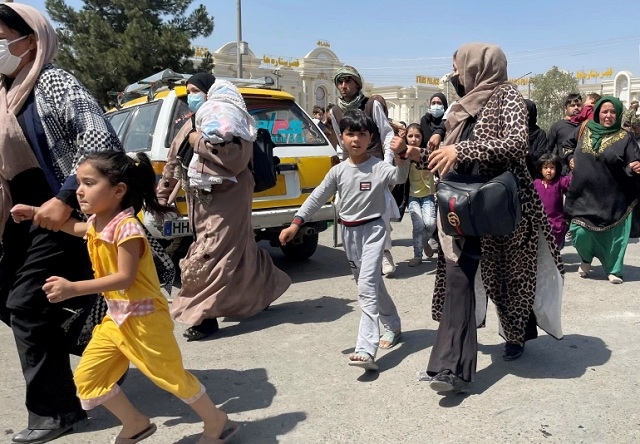Cross-Roads
| Date :19-Aug-2021 |

THE current Afghan crisis has brought Indian diplomacy to a new cross-roads tackling which is a major challenge the like of which the country’s foreign policy planners and handlers have never faced before. This challenge is pushing the foreign policy managers to have a cumulative rethink of what they have done in the past four decades. Successful handling of the Afghan crisis by India will depend much on how this foreign policy imbroglio is gotten over with. This exercise is testing severely comprehensive maturity of Indian leadership from all sides. What is playing on the mind of India’s diplomatic and political leaderships is the cumulative past experience the country accumulated over time -- like the handling of the Tamil militant crisis in Sri Lanka, or the hurried assistance to the beleaguered Maldives government, or the handling of the emerging scenario in the post-military coup Myanmar.
Though some of the Indian approaches to those moments were successful, the country also met with terrible disappointment in Sri Lanka, for example. Every diplomat would love to put behind the ugly memories of the mess up in the handling of the Sri Lankan Tamil militant crisis when Prime Minister Mr. Rajiv Gandhi chose to support on the sly the Tamil Tigers with commando training and large scale funding. Of course, he was only carrying forward with the policy proposed by none other than his mother Prime Minister Mrs. Indira Gandhi. But the overall handling of the situation was messy and did not achieve any tangible political outcome for India. India only ended up following paradoxical goals of first helping the Tamil militants and then waging a mini war to finish them. That was certainly a dark chapter in Indian diplomatic history.
In subsequent years, particularly after the emergence of Mr. Narendra Modi as Prime Minister with colleagues such as Mrs. Sushma Swaraj and later Dr. S. Jaishankar as Ministers of External Affairs, the approach changed to what is generally described as non-reciprocal assistance. This approach was adopted in full measure in Afghanistan -- yielding good result of India’s contribution to national reconstruction by way of brand new Parliament complex, and other major infrastructural additions, such as roads, schools, hospitals, airports. All that stands almost fully nullified now with the rise of Taliban to power in Afghanistan. It is only natural that India is looking once again seriously at its own approach and scrutinising its options. For, all of a sudden, despite its all the deep interest in Afghan issue and investment of money and energy, India has become an outsider in the scene. For foreign policy planners and handlers, this is not a happy tiding, so to say. Nevertheless, this moment also offers India a major opportunity to redefine many of its foreign policy goals and ideas. The best way to face this critical time is to stay put in belief that India still has a chance to make constructive contribution to Afghanistan’s rebuilding after the current conflict. True, this idea is terribly circumscribed with the fact of the Talibanic idea of governance.
It also militates against the avowed India and so many other nations have taken about not supporting any entity that comes to power with force. Technically, that should debar the Taliban regime from being the beneficiary of any international support, barring that from China or Pakistan. But if the international opinion changes following changing interest-perception, then India’s earlier policy may be ushered back into contention in a new garb. Much caution will underline the Indian approach, of course, learning from the past mistakes. No matter all the intellectual justifications of this or that stance, the international realpolitik will have its free play in the emerging Afghan situation in the next few years. As a major Asian power, India will have to adopt the policy of a wait-and-watch until a suitable moment offers itself for a quick step-in and occupy a legitimate in the picture in the aftermath of the conflict of international ramifications.